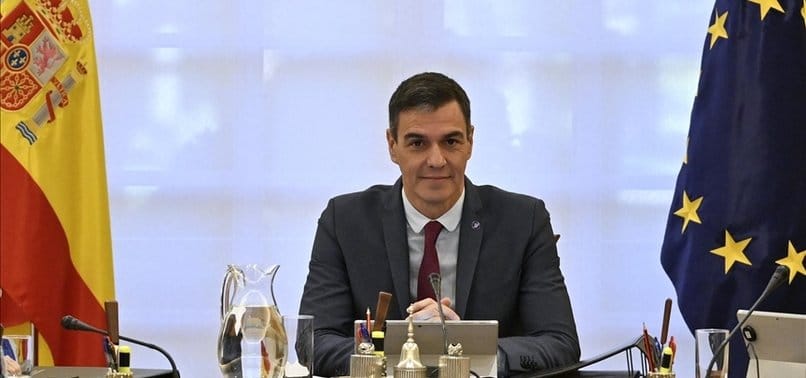EU Divided: Spain's Palestinian Statehood Recognition Stance Clashes with Estonia's Unwavering Support for Israel
In the complex tapestry of international relations within the European Union, diverging stances on key geopolitical issues like the Israel-Palestine conflict can highlight the intricacies and potential fractures within the union. The recent move by Spain, under the leadership of Prime Minister Pedro Sanchez, to openly consider recognizing Palestinian statehood

In the complex tapestry of international relations within the European Union, diverging stances on key geopolitical issues like the Israel-Palestine conflict can highlight the intricacies and potential fractures within the union. The recent move by Spain, under the leadership of Prime Minister Pedro Sanchez, to openly consider recognizing Palestinian statehood even against the collective stance of the EU, exemplifies this divergence.
This decision by Spain, articulated by Sanchez during a press conference at the Egyptian side of the Rafah border crossing, marks a significant shift in the country's foreign policy. Sanchez emphasized the need for the international community, and particularly the EU, to recognize the state of Palestine. While advocating for a unified decision among several member states, he also asserted Spain's readiness to act independently if necessary.
In stark contrast, countries like Estonia have maintained a consistently strong support for Israel, even amidst the ongoing conflict and humanitarian concerns. This steadfast support, in light of Spain's contrasting stance, underscores the diverse perspectives within the EU on major international issues. Such differences in viewpoints reflect the underlying complexity of EU politics, where member states often balance their individual national interests with collective EU policies.
The potential meeting of leaders like the Estonian Prime Minister with Spain's Sanchez, or Estonian President with NATO ally President Erdogan of Turkey, who has expressed strong opinions on the conflict, would be a crucial moment. These meetings could either bridge the differences or further highlight the divergences within the EU. Erdogan's vocal stance on the conflict, including warnings of escalated tensions in Europe if the situation in Palestine worsens, adds another layer to the diplomatic challenge.
These divergent stances within the EU on the Israel-Palestine conflict not only illustrate the union's pluralistic nature but also raise questions about its coherence as a unified political entity. The EU's ability to manage these differences and maintain a unified front in international affairs is continually tested by such divergent national policies. This scenario, where member states like Spain and Estonia sit on opposite ends of the spectrum on such a pivotal issue, serves as a microcosm of the broader challenges facing the EU in its quest for unity amidst diversity.
In the face of these challenges, the EU's diplomacy and internal negotiations will play a pivotal role. How member states navigate their bilateral relations, manage their individual foreign policies, and yet strive for a coherent EU stance, remains a delicate and ongoing process. The Israel-Palestine conflict, in this context, is not just a matter of external foreign policy but also a litmus test for the internal unity and resilience of the European Union.




